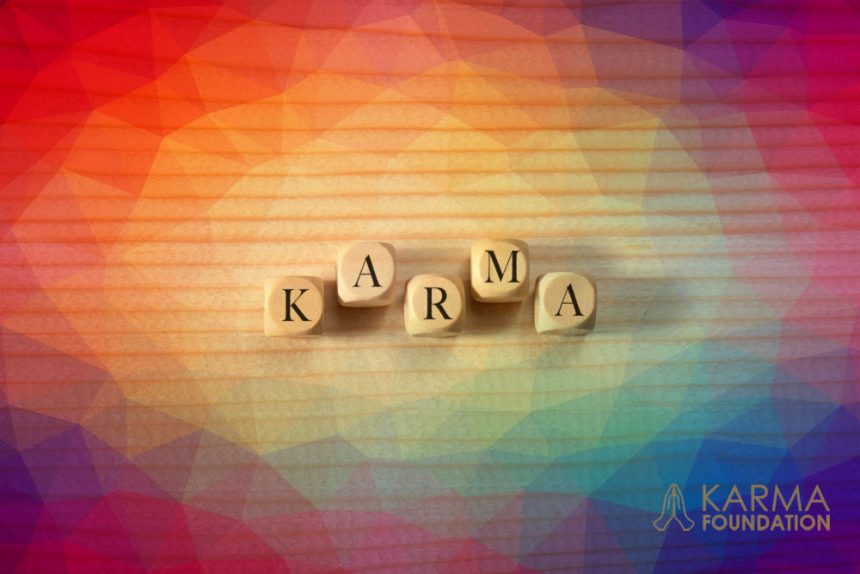Do you understand and appreciate what karma is? You may think you do – but do you really? Truly? It’s a word that’s often used very causally in our everyday, materialistic world and when it is used thusly, it’s often used with little regard for how profound an entity it actually is. So, what should you learn and understand about karma..?
What is karma, really?

Understanding karma depends on accepting your identity, your being, is defined by your soul. We appreciate here, at Karma Foundation, that this notion doesn’t come easily to everyone. Yet, to properly accept what karma is also necessitates the acceptance that human beings are spiritual beings who are sustained by a divine force.
Karma, then, dictates that what we do in our lives are things for which we are spiritually accountable. Thus, incurred by these behaviours, decisions and actions, we accrue and carry karma debts. It’s about spiritual debt; the aim being to be in balance – or, if you like, to be in credit, not in debit.
Karma is spiritual, sure; but, like our lives on this planet, it’s played out physically – via what we do with our bodies, our thoughts and our feelings and in relationships and in our experiences. And yet, strictly speaking, karma doesn’t just apply to one lifetime; many who believe in karma believe that karmic debt is passed on from one soul’s lifetime to the next – and so on.
The ‘what goes around comes around’ concept

In simple, everyday terms, karma is often summed up by the idiom ‘what goes around comes around’ or ‘you reap what you sow’. True; both these sayings capture the essence of the ‘cause and effect’ that underpins karmic debt. And what goes around doesn’t just come around from what you do as an individual, there is a collective element to karma, too; should something you do be, yes, group-based (family karma, for instance). Karmic activity, then, you might say, could be classified as good, bad, individual and collective.
So, everything we’re accountable for saying or doing has an effect on what’ll happen to us in our life (and lifetimes) to come; whether it’s an activity or utterance that’s honest or dishonest or a help or a hindrance to others, it all accumulates and is recorded in our karmic credit or debit columns.
So, rest assured, while some people may, yes, escape in life – or one of their lives – the consequences of a crime (whatever its nature; illegal or otherwise), karma dictates that it’ll catch up with them, eventually.
Learning to live at peace and with acceptance

However, some might point to a certain ‘unfairness’ in these karmic principles. That is, is it fair for someone to be held accountable and ‘punished’ for something bad – especially bad – they’ve done in a past life of which they couldn’t possibly be aware in this one? Well, this is where spiritual and/ or religious wisdom comes in to truly teach the journey of karma.
For instance, to study the teachings of Hinduism, you’ll come to realise that to understand karma is really about trying to behave as best you can as a human being, from life to life; so you break the cycle of karma, empty your karma debit column and build up your karmic credit column. All in the name of eventually transcending this material world for entrance into its spiritual equivalent. Now, that’s something many would see as a lofty ambition, for sure.

